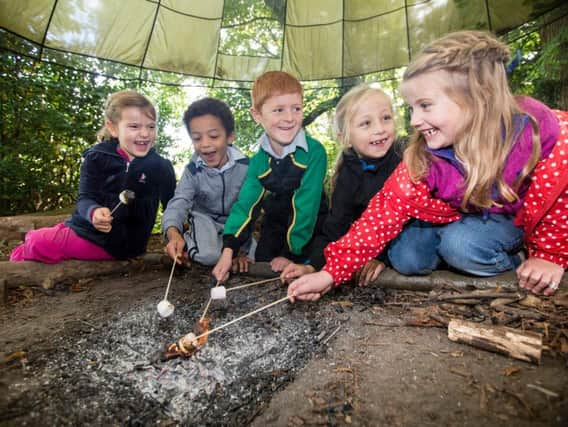Branching out from classroom for wild lessons


But over the years, teaching methods and styles have evolved and decades of research have shown that most children learn best through a wide range of varied and interactive styles.
A Nidderdale private school is one of a growing number embracing this ethos.
Advertisement
Hide AdAdvertisement
Hide AdBelmont Grosvenor, near Harrogate, recently became the only school in the region to have been recognised by the Learning Outside the Classroom (LOtC) Council.
The school was presented with a Silver Award for utilising its 20 acres of outdoor space, as well as its buildings and environment.
Headteacher Jane Merriman said staff had noticed the educational benefits for children who had struggled to work within a classroom.
She added: “Our younger children, from age three to seven, enjoy Forest School sessions as part of our curriculum.
Advertisement
Hide AdAdvertisement
Hide Ad“It introduces a whole new dimension to teaching and learning – offering new experiences for both our pupils and teachers.
“In our special woodland area, pupils are encouraged to take risks and try new challenges – in weekly timetabled sessions they enjoy a wide variety of Forest School activities designed to help grow their confidence and self-esteem.
“These can include constructing dens and building campfires. Some children who struggle to work within a classroom often shine.
“Children start to move away from their traditional class-based friendship groups and appreciate others’ strengths and support those who may not find practical skills easy.”
The Forest School Association, which promotes hands-on learning experiences in a woodland or natural environment with trees, has seen its membership grow from 200 in 2012 to more than 2,000 today.